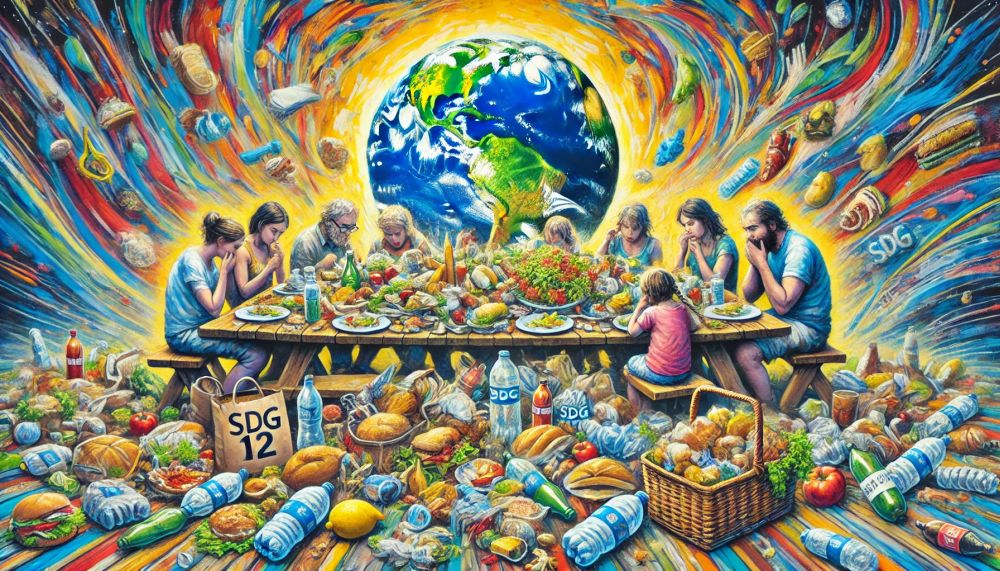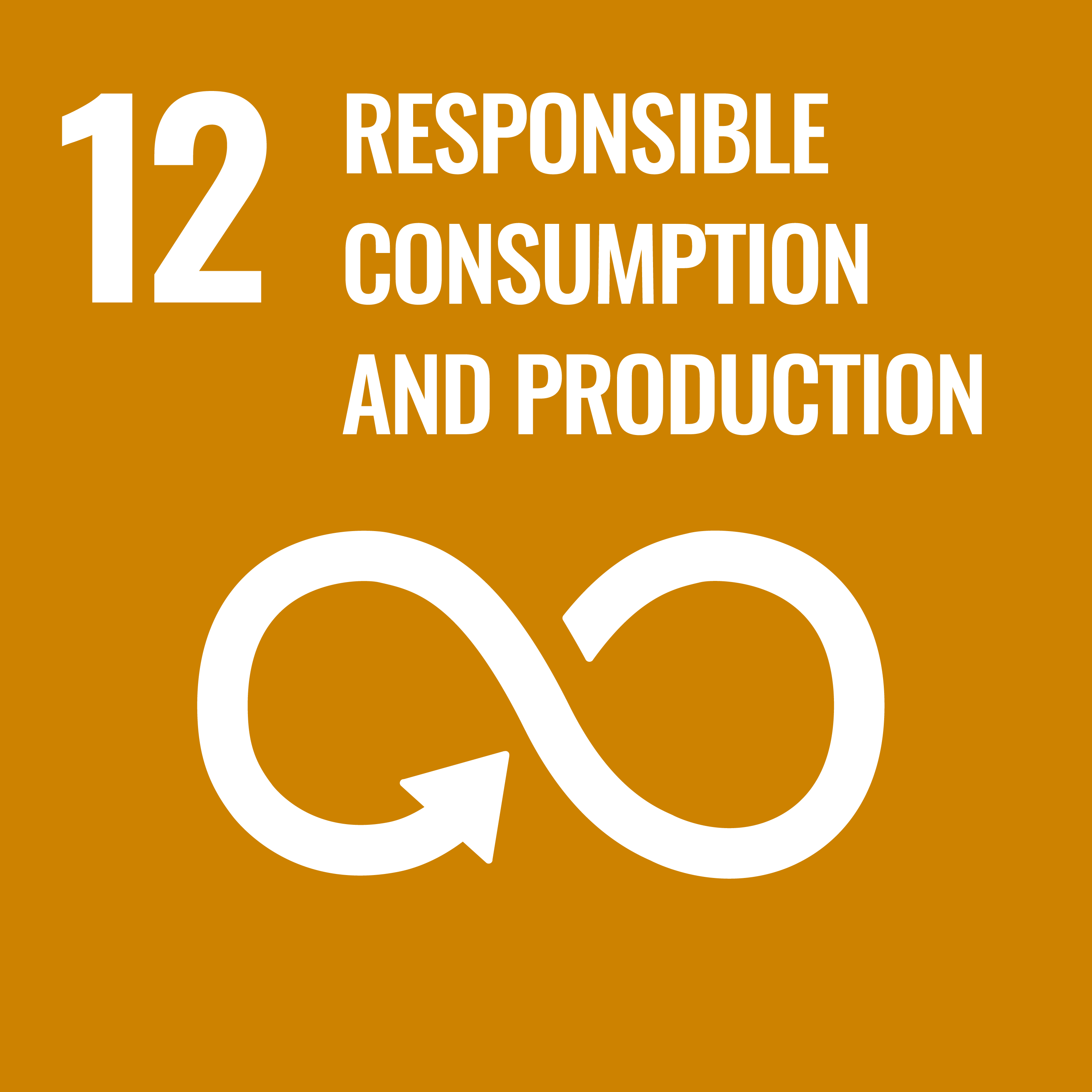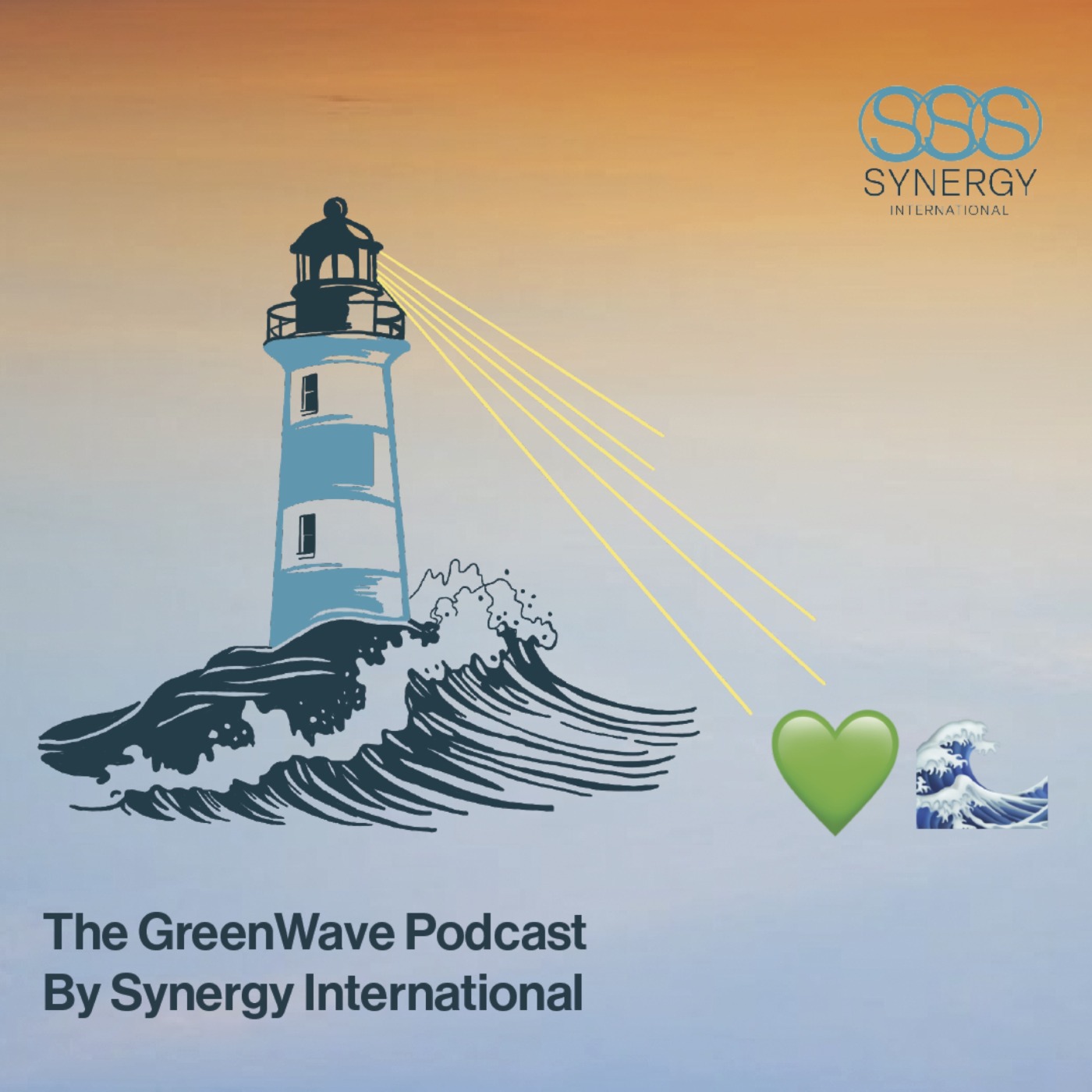SDG Goal 12

SDG Goal 12: Responsible Consumption and Production – Crafting a Sustainable Feast for All
Ever been to a family picnic where everyone brings way too much food? The tables overflow, dishes go untouched, and by the end of the day, heaps of food end up in the trash. It's wasteful and leaves a sour note on what should be a joyful gathering. Now, imagine a picnic where everyone coordinates—each person brings just enough, shares dishes thoughtfully, and at the end of the day, nothing is wasted. That's the vision of Sustainable Development Goal 12 (UN SDG 12): organizing the ultimate family picnic on a global scale, where resources are shared wisely, waste is minimized, and everyone gets their fair share. It's about creating a sustainable future where our consumption habits don't cost the Earth but instead nurture it for generations to come.
SDG Goal 12 - International Agreements and Frameworks

Achieving SDG 12 is much like planning that perfect family picnic—it requires coordination, clear communication, and everyone playing their part responsibly. This global endeavor is guided by several key international agreements and frameworks that set the rules of the game, ensuring we all contribute to a sustainable feast. Let's unpack six pivotal agreements driving SDG 12 forward:
1. Stockholm Convention on Persistent Organic Pollutants – 2001
The Global Banquet Organizer for Hazardous Chemicals
The Stockholm Convention is a global treaty designed to protect human health and the environment from chemicals that remain intact in the environment for long periods, known as Persistent Organic Pollutants (POPs). These substances can accumulate in living organisms, leading to significant health risks, including cancer and disruptions to immune and reproductive systems.
- How it supports SDG 12: By aiming to eliminate or restrict the production and use of POPs, the convention promotes responsible production practices. It encourages countries to manage chemicals safely, reduce hazardous waste, and transition to safer alternatives, aligning with SDG 12's focus on sustainable consumption and production.
- Implementation and Impact: Countries that are parties to the convention are required to develop national implementation plans, regulate and reduce POPs, and engage in information exchange and public awareness efforts. This collective action helps prevent environmental contamination and promotes healthier ecosystems.
- Best website to learn about the Stockholm Convention: pops.int
2. Basel Convention on the Control of Transboundary Movements of Hazardous Wastes and Their Disposal – 1989
The Waste Management Coordinator for Our Global Picnic
The Basel Convention addresses the movement of hazardous waste between nations, particularly from developed to less developed countries. It seeks to protect human health and the environment against the adverse effects of hazardous wastes.
- How it supports SDG 12: The convention promotes environmentally sound management of hazardous and other wastes, minimizing their generation and controlling their movement. By encouraging recycling and safe disposal, it fosters sustainable practices that reduce the environmental footprint of waste.
- Implementation and Impact: Parties to the convention must notify and obtain consent before exporting hazardous waste, ensure proper disposal methods, and minimize waste generation. This helps prevent the dumping of hazardous waste in countries ill-equipped to handle it, promoting global responsibility.
- Best website to learn about the Basel Convention:
Basel Convention Official Website
3. Paris Agreement on Climate Change – 2015
Setting the Temperature Right for Our Global Feast
The Paris Agreement is a landmark accord within the United Nations Framework Convention on Climate Change (UNFCCC), bringing nations together to combat climate change and adapt to its effects, with enhanced support to assist developing countries.
- How it supports SDG 12: By aiming to limit global warming to well below 2 degrees Celsius, the agreement necessitates changes in consumption and production patterns. It encourages sustainable energy use, reduction of greenhouse gas emissions, and promotes responsible industrial practices.
- Implementation and Impact: Countries submit Nationally Determined Contributions (NDCs) outlining their climate actions. These include transitioning to renewable energy, enhancing energy efficiency, and adopting sustainable agriculture—all contributing to more responsible consumption and production.
- Best website to learn about the Paris Agreement: unfccc.int/process-and-meetings/the-paris-agreement
4. The 10-Year Framework of Programmes on Sustainable Consumption and Production Patterns (10YFP) – 2012
The Menu Planner for Sustainable Choices
The 10YFP is a global framework adopted at the United Nations Conference on Sustainable Development (Rio+20) to accelerate the shift towards sustainable consumption and production in both developed and developing countries.
- How it supports SDG 12: The framework promotes resource efficiency and sustainable lifestyles, encouraging innovation and cooperation among stakeholders. It focuses on key areas such as sustainable tourism, consumer information, sustainable buildings, and food systems.
- Implementation and Impact: Through its network, now known as the One Planet Network, it facilitates projects, shares best practices, and provides tools and resources to support countries in implementing sustainable consumption and production policies and initiatives.
- Best website to learn about the 10YFP:
One Planet Network: 10YFP Overview
5. Montreal Protocol on Substances that Deplete the Ozone Layer – 1987
Protecting the Canopy Over Our Global Picnic
The Montreal Protocol is a pioneering environmental agreement that regulates the production and consumption of nearly 100 man-made chemicals referred to as ozone-depleting substances (ODS).
- How it supports SDG 12: By phasing out ODS, the protocol not only protects the ozone layer but also encourages the development and adoption of sustainable production methods and alternatives that are less harmful to the environment, contributing to responsible production.
- Implementation and Impact: The protocol has achieved universal ratification and has successfully phased out 98% of ODS globally. It has also been amended to include the Kigali Amendment, targeting the reduction of hydrofluorocarbons (HFCs), potent greenhouse gases.
- Best website to learn about the Montreal Protocol:
UN Environment Programme: Montreal Protocol
6. The 2030 Agenda for Sustainable Development – 2015
The Grand Blueprint for Our Sustainable Feast
The 2030 Agenda is a comprehensive plan adopted by all United Nations Member States, providing a shared blueprint for peace and prosperity for people and the planet.
- How it supports SDG 12: The agenda outlines 17 Sustainable Development Goals, with SDG 12 focusing specifically on responsible consumption and production. It sets targets for sustainable management of natural resources, reducing global food waste by half, achieving environmentally sound management of chemicals and wastes, and encouraging companies to adopt sustainable practices.
- Implementation and Impact: The agenda calls for collaborative efforts, integrating sustainability into national policies and practices. It emphasizes the interconnectedness of all goals, recognizing that progress in responsible consumption and production supports broader objectives like climate action, economic growth, and social inclusion.
- Best website to learn about the 2030 Agenda:
United Nations Sustainable Development: Transforming our World
These international agreements are like cherished family recipes handed down through generations—they provide the guidelines and traditions we follow to ensure our global picnic is enjoyable and sustainable. They help nations coordinate their efforts, share responsibilities, and commit to actions that protect our planet.
So, whether you're opting for reusable containers at your next picnic, supporting businesses that prioritize sustainability, or advocating for policies that reduce waste, remember—every sustainable choice you make adds a delicious, responsible dish to our global feast. Let's work together to create a world where resources are valued, waste is minimized, and everyone enjoys the bounty without leaving a mess behind. It's time to set the table for a sustainable future where everything finds its purpose, and nothing goes to waste!
Let's make every day Earth Day by embracing responsible consumption and production. Together, we can ensure that our global family picnic leaves a legacy of sustainability for generations to come.

